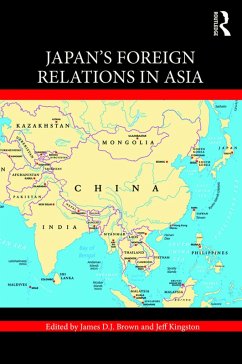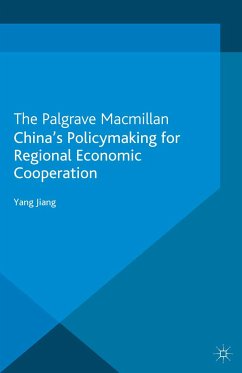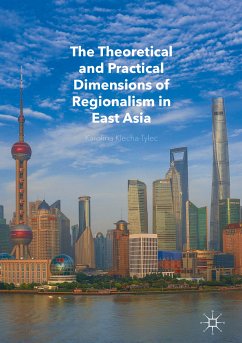
Japan's Foreign and Security Policy Under the 'Abe Doctrine' (eBook, PDF)
New Dynamism or New Dead End?

PAYBACK Punkte
22 °P sammeln!
Japan is shifting onto a new trajectory for a more muscular national security policy, US-Japan alliance ties functioning for regional and global security, and the encirclement of China's influence in East Asia. The author explores how PM Abe Shinz?'s doctrine may prove contradictory and counter-productive to Japanese national interests.
Dieser Download kann aus rechtlichen Gründen nur mit Rechnungsadresse in A, B, BG, CY, CZ, D, DK, EW, E, FIN, F, GR, HR, H, IRL, I, LT, L, LR, M, NL, PL, P, R, S, SLO, SK ausgeliefert werden.












